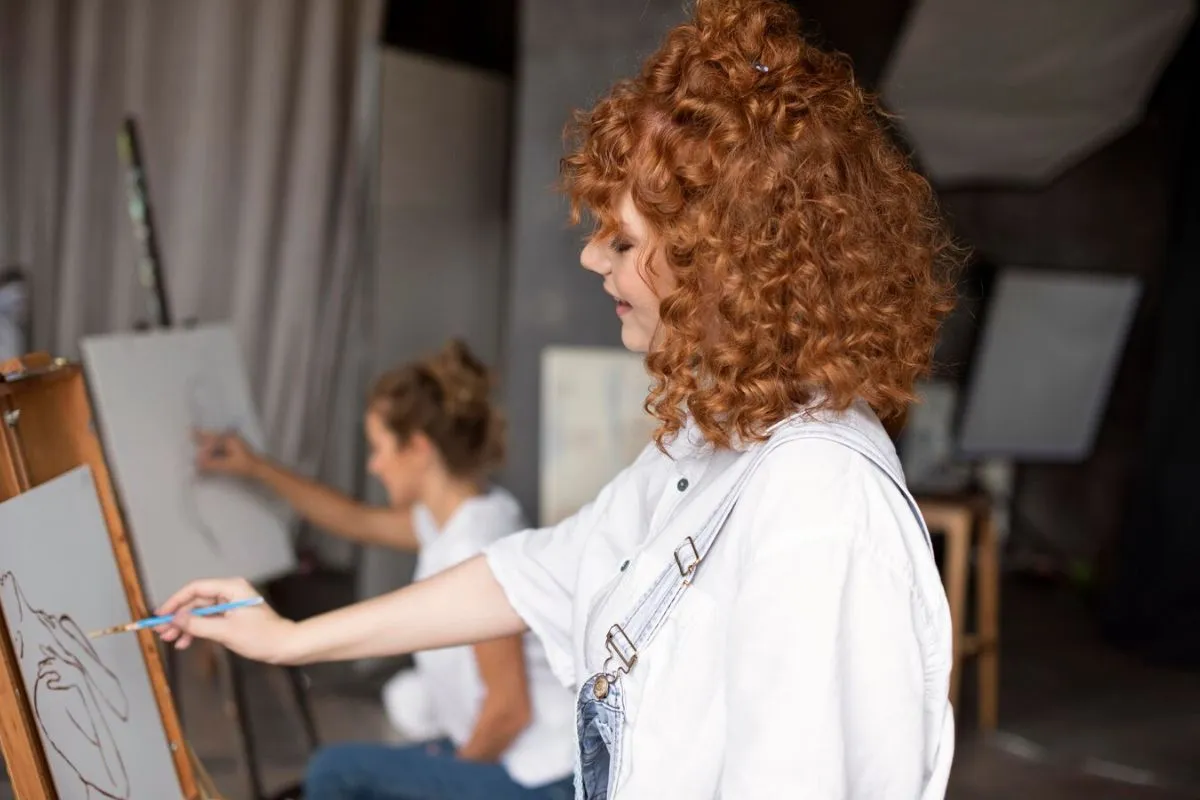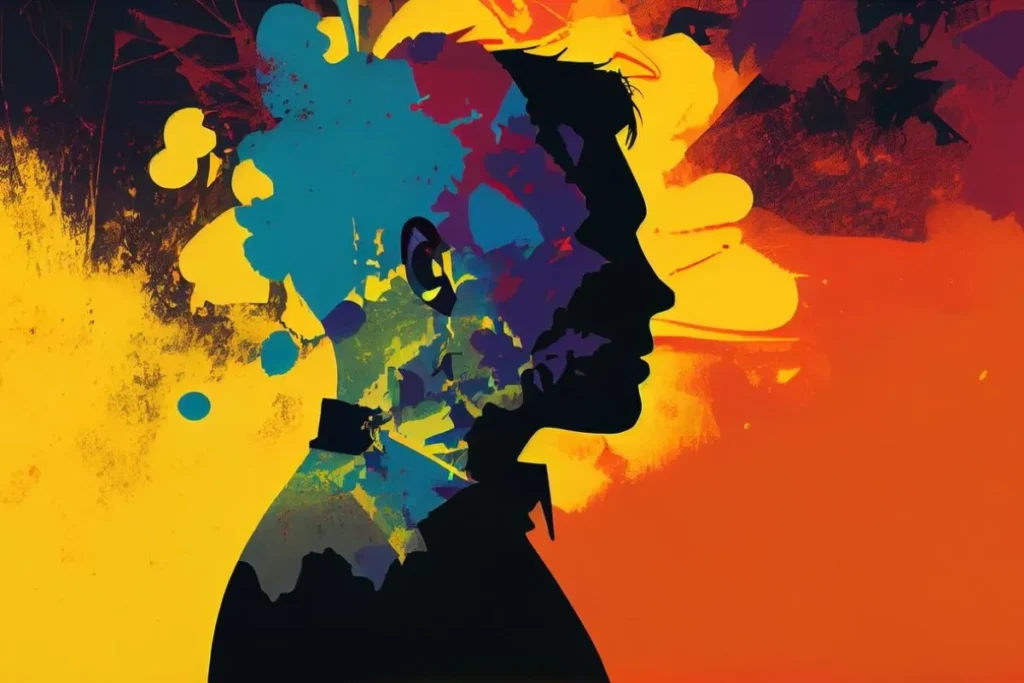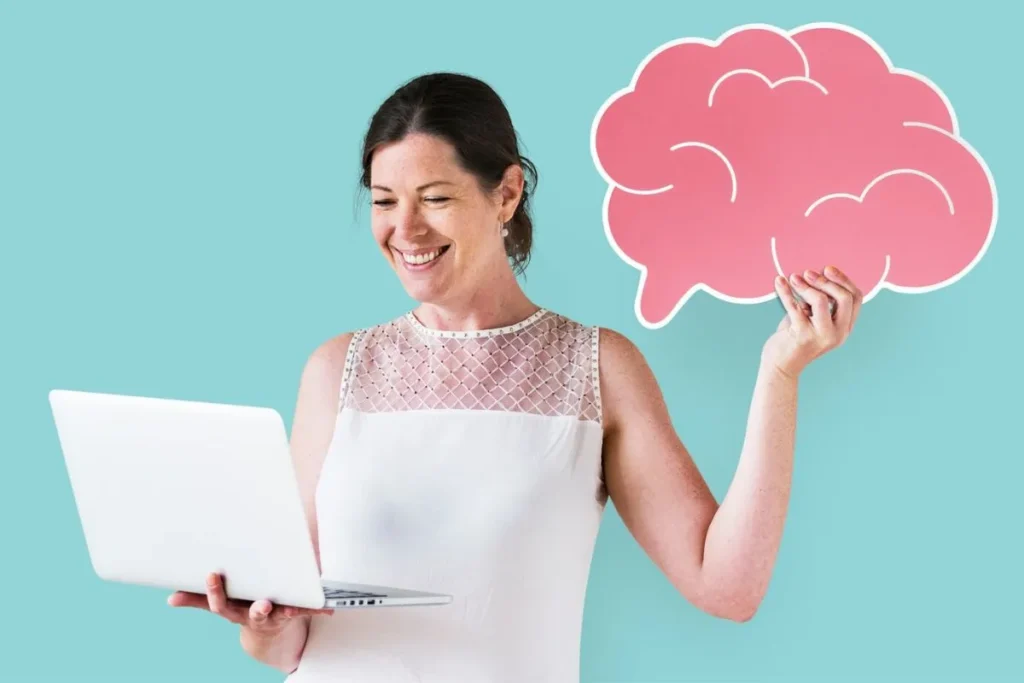Cognitive Training for Artistic Skills has gained significant attention in recent years. This method focuses on enhancing cognitive functions to improve artistic abilities.
By utilizing targeted cognitive exercises, individuals can refine their creativity, concentration, and problem-solving skills.
Understanding how cognitive training impacts artistic skills can help unleash hidden potential in artists.
The Role of Cognitive Training
Cognitive training aims to enhance various mental processes. These include memory, attention, and decision-making. By engaging in targeted exercises, individuals can strengthen neural connections and improve cognitive efficiency. Techniques such as memory games, mindfulness practices, and problem-solving tasks are commonly used. This holistic approach ensures a well-rounded enhancement of mental capabilities.
By focusing on these areas, cognitive training helps to improve the brain’s overall functionality. Artistic skills are directly linked to cognitive functions. Enhanced memory aids in retaining and recalling complex techniques, while improved attention allows for greater focus on intricate details.
Better decision-making skills contribute to more effective problem-solving in the creative process. Consequently, artists can achieve a higher level of precision and creativity in their work.
Through consistent practice, artists can notice significant improvements in their work. Regular cognitive training can lead to long-term benefits, such as sustained mental agility and resilience. Over time, these improvements can result in more innovative and polished artistic output.
Additionally, the confidence gained from enhanced cognitive abilities can inspire artists to take on more ambitious projects. This continuous growth and development foster a more fulfilling and successful artistic career.
Memory Enhancement
Memory plays a crucial role in artistic creation. Artists often rely on their memory to recall techniques and creative ideas.
Cognitive training can significantly enhance both short-term and long-term memory. This enhancement leads to better retention of artistic methods.
In turn, this ensures a smoother and more efficient creative process.
Boosting Creativity
Creativity is at the heart of any artistic endeavor. Cognitive training can stimulate creative thinking.
Various exercises are designed to foster divergent thinking. This practice expands an artist’s creative horizons.
As a result, artists can develop unique styles and innovative approaches in their work.
Problem-Solving Skills
Art often involves tackling complex problems. Cognitive training helps artists build robust problem-solving abilities.
This improvement allows them to navigate creative challenges more effectively. Artists can find novel solutions and improve their overall work quality.
Implementing Cognitive Training
Applying cognitive training requires a structured approach. Different methods and techniques can be used.
Understanding these methods is crucial for effective implementation. Here are some key strategies:
- Mindfulness exercises to improve concentration.
- Memory games to enhance retention capabilities.
- Creative thinking challenges to boost innovation.
- Problem-solving tasks to refine analytical skills.
Mindfulness and Concentration
Mindfulness exercises are proven to improve concentration. This practice helps artists focus better on their work.
By reducing distractions, artists can achieve higher levels of productivity. Mindfulness can also reduce creative blocks.
Overall, it leads to a more focused and efficient creative process.
Memory Games
Memory games are effective in enhancing retention. These games challenge the brain to recall information faster.
Improved memory aids in recalling artistic techniques and details. This retention is crucial for mastering artistic skills.
Regular practice can significantly boost memory functions in artists.
Creative Thinking Challenges
Creative thinking challenges push the boundaries of traditional thought processes. These exercises encourage out-of-the-box thinking. By engaging in these activities, artists can break free from conventional patterns and explore new perspectives.
These challenges often involve problem-solving and brainstorming techniques that stimulate the brain. Regular participation in such exercises can significantly enhance an artist’s ability to think creatively.
Artists can develop new styles and innovate through these challenges. They help in exploring uncharted creative territories. This exploration can lead to the discovery of unique techniques and artistic methods.
By constantly pushing their limits, artists can stay ahead of trends and set new benchmarks in their field. Moreover, these challenges can reignite passion and motivation, leading to more dynamic and engaging work.
Overall, these challenges lead to a richer artistic expression. They provide opportunities for growth and learning, enabling artists to refine their skills. The diversity of thought and creativity that emerges from these exercises contributes to more compelling and original artwork.
Additionally, engaging in creative thinking challenges fosters a supportive community of like-minded individuals, promoting collaboration and inspiration. Ultimately, these activities enhance both the personal and professional growth of artists.
Impact on Artistic Skills
The impact of cognitive training on artistic skills is profound. It transforms the way artists approach their work.
Artists notice improvements in various aspects of their creative output. Here are some notable benefits:
- Enhanced creativity and innovation.
- Improved problem-solving abilities.
- Better memory retention for techniques.
- Increased focus and productivity.
Brain Plasticity
Brain plasticity refers to the brain’s ability to adapt and change. Cognitive training leverages this property to enhance skills.
Through consistent training, artists can reshape their brain functions. This adaptation leads to better artistic performance.
Brain plasticity is a powerful tool for unlocking potential.
Learning and Adaptation
Learning is an ongoing process in the realm of art. Cognitive training aids in assimilating new information effectively.
Artists can quickly adapt to new techniques and trends. This adaptability is crucial for staying relevant in the art world.
Cognitive training makes the learning curve smoother and faster.
Overcoming Challenges
Artists face numerous challenges in their creative journey. Cognitive training provides tools to overcome these obstacles.
Building resilience through cognitive exercises is key. Artists can tackle creative blocks more efficiently.
Here are some common challenges and solutions:
- Dealing with creative blocks through mindfulness.
- Improving focus to reduce distractions.
- Using problem-solving exercises for complex tasks.
- Boosting memory to retain multiple techniques.
Creative Blocks
Creative blocks are a common issue for artists. Mindfulness and cognitive exercises help clear these blocks.
Artists can regain their creative flow through focused exercises. These practices help in maintaining a steady creative output.
Regular training ensures that creative blocks are less frequent and less severe.
Improving Focus
Distractions are the enemy of artistic productivity. Cognitive training helps in honing concentration skills.
Artists can focus better on their tasks with structured exercises. This improved focus leads to higher-quality work.
Overall, better concentration results in more efficient artistic output.
Problem-Solving for Complex Tasks
Artistic creation often involves complex tasks. Problem-solving exercises refine an artist’s analytical skills.
Artists can navigate these complexities more effectively. This leads to enhanced creative solutions and innovation.
Overall, problem-solving skills are crucial for mastering artistic challenges.
Future Prospects
The future of cognitive training for artistic skills is promising. Advancements in neuroscience offer new insights. These insights help us understand how the brain processes creativity and learning.
As we learn more about neural plasticity, new training methods can be developed to specifically target areas of the brain involved in artistic skills. This growing knowledge base will lead to more effective and personalized cognitive training programs for artists.
Emerging techniques and technologies will further refine this field. Artists can look forward to cutting-edge improvements. Innovations such as brain-computer interfaces (BCIs) and enhanced neuroimaging techniques will provide deeper insights into the creative process.
These tools can help identify the most effective training strategies and tailor them to individual needs. Additionally, advancements in AI can offer customized feedback and support, making cognitive training more accessible and impactful.
Continued research will unlock new potential in cognitive training. This, in turn, will elevate artistic skills and creativity to new heights. By continuously exploring the connections between brain function and artistic expression, researchers can develop more sophisticated training methods.
This evolution will enable artists to push the boundaries of their creativity and achieve higher levels of mastery. The integration of these advanced techniques promises a transformative impact on the future of artistic development.
Technological Innovations
Technology plays a pivotal role in enhancing cognitive training. Virtual reality and AI are being integrated into training modules.
These innovations offer immersive and personalized training experiences. Artists can benefit from advanced techniques tailored to their needs.
Overall, technological advancements will revolutionize cognitive training.
Neuroscientific Research
Neuroscientific research is continually evolving. New studies offer deeper insights into brain functions and training methods.
These findings will enhance the effectiveness of cognitive training. Artists can look forward to more targeted and efficient training protocols.
Overall, continued research is key to unlocking further artistic potential.
Emerging Techniques
New techniques in cognitive training are emerging rapidly. These methods offer innovative ways to enhance artistic skills. Technologies like virtual reality (VR) and artificial intelligence (AI) are being integrated into cognitive training programs, providing immersive and interactive learning experiences.
These advancements make training more engaging and effective. Artists can now simulate real-world scenarios and receive instant feedback, accelerating their skill development.
Artists can adopt these techniques to stay ahead in their field. Continuous learning and adaptation are crucial for artistic growth. By embracing new cognitive training methods, artists can keep their skills sharp and stay competitive.
This proactive approach not only enhances current abilities but also opens up new creative possibilities. Moreover, artists who continually adapt are better equipped to handle the evolving demands of their industry.
Overall, emerging techniques promise a brighter future for cognitive training. These innovations offer more personalized and targeted approaches to skill enhancement. As research in cognitive science progresses, training programs will become even more refined and effective.
This ongoing evolution ensures that artists have access to the best tools and methods for their development. Embracing these advancements can lead to unprecedented levels of artistic achievement and satisfaction.
Engage in Cognitive Training Today!
Unlock your artistic potential through cognitive training for artistic skills. Embrace the various methods and techniques available. Techniques such as neurofeedback, brainwave entrainment, and mindfulness exercises can all play a role in enhancing your cognitive functions.
Regular practice of these methods can lead to improved neural connections and heightened creativity. By incorporating these techniques into your routine, you can tap into deeper layers of your artistic potential.
Start enhancing your creativity, concentration, and memory. Experience a significant boost in your artistic abilities. Cognitive training not only improves your technical skills but also enhances your ability to think outside the box. This can result in more innovative and expressive artwork.
Additionally, improved concentration helps in maintaining focus during long creative sessions, while enhanced memory aids in retaining and recalling artistic concepts and techniques.
Explore cognitive training programs and begin your journey today. Elevate your art to new heights with consistent training. Programs tailored to artists can provide structured and effective exercises to target specific cognitive skills.
Joining a community of like-minded individuals can also offer support and motivation. By committing to a cognitive training regimen, you can ensure continuous growth and development in your artistic endeavors.
Frequently Asked Questions
What is cognitive training?
Cognitive training involves exercises aimed at improving mental functions like memory, attention, and problem-solving.
How does cognitive training enhance artistic skills?
It enhances memory, creativity, and problem-solving abilities, which are essential for artistic creation and innovation.
What are some examples of cognitive training exercises?
Examples include memory games, mindfulness exercises, problem-solving tasks, and creative thinking challenges.
Is cognitive training suitable for all artists?
Yes, cognitive training can benefit artists of all skill levels, helping them improve various aspects of their work.
Where can I find cognitive training programs?
You can find cognitive training programs online, through specialized workshops, or by consulting cognitive training professionals.




